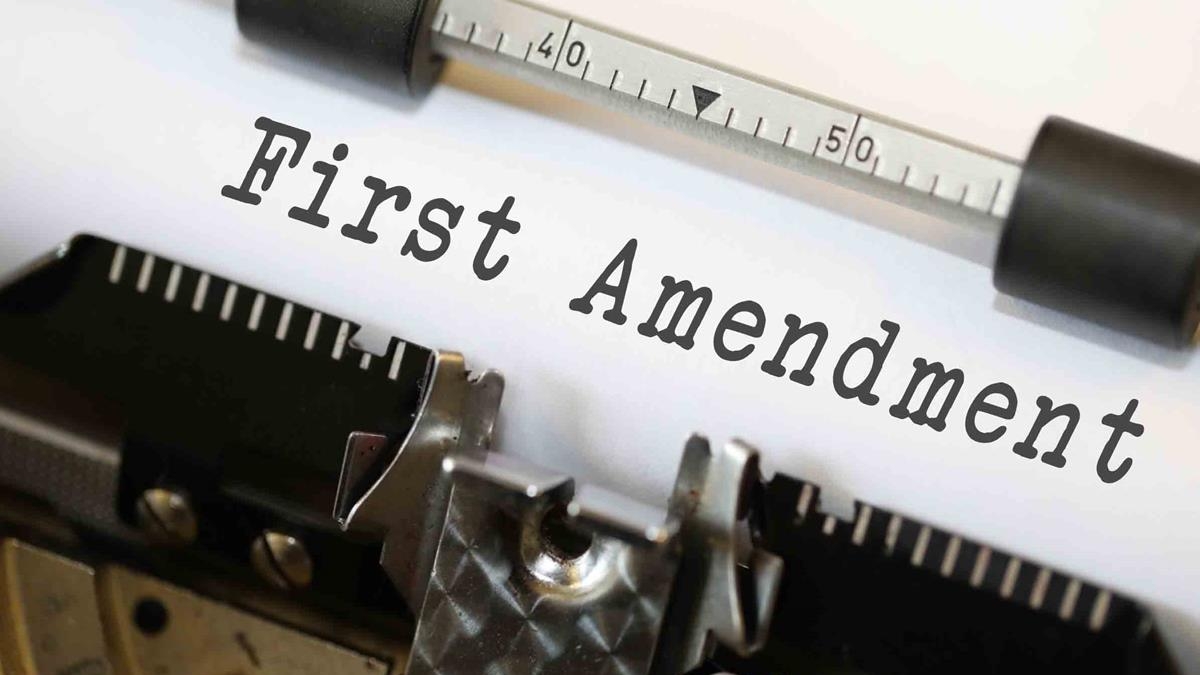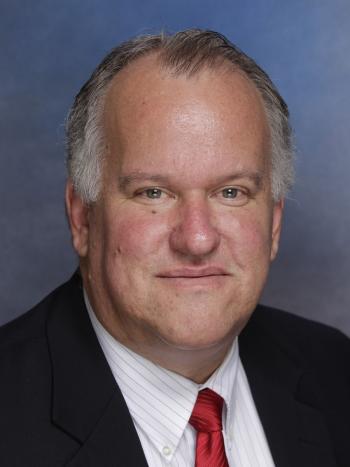Seems like journalists can’t count on many allies these days.
But they have a new one in Gregg Leslie, an Arizona State University professor and media law expert who will open a legal clinic this week on the Downtown Phoenix campus to advance the legal rights of reporters.
Leslie, a former journalist, in May was named the inaugural executive director of the First Amendment Legal Clinic at the Sandra Day O’Connor College of Law. The center’s twin goals will focus on freedom of the press issues as well as teaching a new generation of lawyers how to help individuals stand up for their rights and address the roadblocks keeping journalists from doing meaningful work.
The clinic was funded by an almost $1 million gift from the Stanton Foundation, a private organization established by longtime CBS president Frank Stanton.
ASU Now recently spoke to Leslie, who will run the clinic as executive director with ASU Law Professor James WeinsteinJames Weinstein is a noted free-speech author and litigator, and the Dan Cracchiolo chair in Constitutional Law at ASU. serving as faculty adviser.
Gregg Leslie
Question: Congratulations on opening ASU’s First Amendment Legal Clinic. What made you want to take on this challenge?
Answer: I’ve always been involved in defending and advancing the legal rights of journalists and ensuring that the government is open and accountable to its citizens. So when the opportunity came up at the law school here, I jumped at the chance to help teach the next generation of media lawyers and openness advocates. As the news industry continues to grapple with financial challenges and therefore scales back its push for access somewhat, it’s more important than ever that we train lawyers to take up the cause on behalf of bloggers, freelancers and other advocates and activists.
Q: What is your vision for this clinic and how will it be run?
A: The first objective is to train young lawyers, so we’ll pursue anything that helps the students learn how to interact with and represent journalists and others speakers. The interest in actually making positive changes in the law is also important, but even the ordinary access cases have a real educational value. I want to make sure the students see every aspect of a media practice, from the early consultations, letter-writing and negotiating to the issues that come up in more formal litigation.
Q: You were once a professional journalist before you became an attorney. What were some First Amendment issues you ran into as a reporter, and have those issues changed over time?
A: In some ways, the issues that the media encounters have been the same for decades. We’re still fighting libel claims, which are often brought when a news subject is angry or embarrassed, rather than truly harmed by a false statement of fact. But in the last two decades, we’ve seen a large number of states pass laws that make it easier to dismiss frivolous lawsuits on matters of public importance (called “anti-SLAPP laws”), and that has helped. And, of course, the evolution of online news and social media has added a host of other issues, from copyright claims to take-down demands to questions of liability for readers’ comments.
Personally, the biggest issue I ran into as a reporter concerned a claim for invasion of privacy, when we were sued for $120 million for reporting on a wealthy lawyer and real estate developer. Being served with a complaint with a number that big really sticks with you. Thankfully, our attorney was able to get the case dismissed.
Q: What are the biggest legal challenges facing journalists today?
A: Getting information in the first place is often the biggest challenge. Government officials don’t want to release records, judges and litigants often want to hide what’s going on in court, and police, politicians and even protesters want to interfere with reporters trying to cover important events. And with dwindling news media resources, many officials seem to feel emboldened in their efforts to thwart disclosure and keep the public in the dark.
Q: In terms of the law, is defending First Amendment rights a lost art form?
A: I think there will always be lawyers who defend these rights, and students who want to learn how. But lawyers also have to make a living, and that keeps getting harder to do in this field. So we want to see more general-practice lawyers be prepared to take these issues on as pro bono matters. Those pro bono lawyers have in fact been an important part of the First Amendment landscape for a long time, as it is often the most marginalized people with few resources whose rights are interfered with. So I’m hopeful that the skills necessary to keep fighting this fight will not die out anytime soon.
Q: Is there reason to be positive about the future in this area?
A: Yes. I think that some of the anti-media rhetoric that we’ve seen in the last few years has really encouraged reporters out there to fight even harder for access and accountability. And people generally are learning how important a free press is, which will hopefully help in our efforts to defend and advance those rights. It’s an exciting time to be a journalist or a media lawyer — not because it’s easy, but because it’s challenging and more important than ever.
More Law, journalism and politics
Can elections results be counted quickly yet reliably?
Election results that are released as quickly as the public demands but are reliable enough to earn wide acceptance may not always be possible.At least that's what a bipartisan panel of elections…
Spring break trip to Hawaiʻi provides insight into Indigenous law
A group of Arizona State University law students spent a week in Hawaiʻi for spring break. And while they did take in some of the sites, sounds and tastes of the tropical destination, the trip…

LA journalists and officials gather to connect and salute fire coverage
Recognition of Los Angeles-area media coverage of the region’s January wildfires was the primary message as hundreds gathered at ASU California Center Broadway for an annual convening of journalists…



